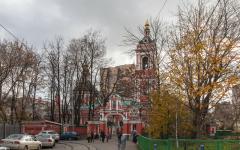New faces in the Public Chamber. Today it became known who was included in the next presidential quota. The decree was signed by Vladimir Putin. Among the forty approved candidates are cardiac surgeon Leo Bokeria, journalist Valery Fadeev, and chess player Sergei Karyakin. The rest will be nominated by regions and non-profit organizations. Moreover, from this year, when forming the chamber, online voting will not be held.
One of the country's main volunteers, Artem Metelev, recently received a letter from President Vladimir Putin. At the age of 24, he was offered to become a member of the Public Chamber. In addition to responsibility, for Artem this is a sign that volunteering in Russia is reaching new level.
“The President spoke about this in his message Federal Assembly, calling for the removal of barriers that prevent volunteer organizations from working. As a matter of fact, this is the work we are currently doing,” says Artem.
The renewed Public Chamber of the sixth convocation will begin work in June. In 2017, it was formed for the first time according to new rules: 40 members of the OP are appointed by the head of state directly, 85 from regional Public Chambers and another 43 people are representatives of public associations and non-profit organizations. Another member of the chamber is a journalist and public figure Valery Fadeev. He and Artem Metelev have something to talk about.
“The country is now experiencing a boom in volunteerism, a boom in the movement of activists, civil activists on the ground. Very often, unfortunately, local authorities do not support such activists and such projects. There is an alienation of power from activists. And I believe that the chamber should work very closely on this,” says Valery Fadeev.
From volunteers and singers to academicians and rectors. All with experience in public and political activity. This means they have an idea of problems and aspirations ordinary people. From Baba Mani from the third entrance, who is seeking renovations in her house, to a brilliant scientist who wants to bring her invention to the market. The country's scientific and technological development strategy was approved by the president in December last year. Members of the new Public Chamber are also participants in its implementation.
"So that a large number of research work that is currently being carried out at the Academy of Sciences, universities, and industry institutes has been united in real products, which will ensure a breakthrough of our economy to the world market, it is necessary to join forces to enter the market. And the Public Chamber allows, perhaps, to form real mechanisms for the implementation of such tasks,” says the rector of the Moscow Aviation Institute, Mikhail Pogosyan.
Young activists and famous personalities- the best in their business. Cardiologist Leo Bokeria was at the forefront of open heart surgery. A pioneer of minimally invasive surgery, when the heart is operated on through tiny incisions. He is called the healer of hearts. And the trainer rhythmic gymnastics Irina Viner-Usmanova is called “mother” by the athletes whom she makes champions. The grandson of Yevgeny Primakov also received a letter from the president with an offer to join the Public Chamber.
“I am absolutely convinced that the Public Chamber is necessary. As I already said, this is a channel for communication between government and society. Yes, there is a more institutional channel, this is parliament, but the advantage of the Public Chamber is that it is not so regulated, not so formalized. This is a more lively dialogue, which is necessary,” says Evgeny Primakov.
A channel of communication between society and the state, which sometimes simply cannot be avoided. There are cases when an outside view is not enough. Often such stories are related to child protection. Just a couple of months ago, social activists followed the fate of a boy who was kidnapped from the maternity hospital and raised in someone else’s family. By law, they are required to take him away from his family. Members of the Public Chamber helped him while investigators worked with the parents, who identified themselves as relatives.
“Always, even without malicious intent, the law is like a tracing paper, it is applied in the most different cases, and this cannot always be applied in the same way. Here we need attention, if cases of, for example, some kind of harm, say, from the literal execution of the law, become more frequent, then the law is imperfect. All this helps to present the authorities and the Public Chamber,” says historian and political scientist Natalya Narochnitskaya.
Control over the work of guardianship authorities, free legal assistance to injured children and adults - the search for a compromise, the possibility of dialogue. Public expertise and much that is often hidden in the dry term “dialogue with civil society" Future participants in this dialogue aim to discuss less and work more. The first meeting of the updated Public Chamber will take place in June.
Russian journalist. TV presenter.
Valery Fadeev was born on October 10, 1960 in the city of Tashkent, Uzbekistan. At school, the boy showed himself to be an excellent analyst, who can easily master precise subjects. After receiving his matriculation certificate, Valery enters the Moscow Institute of Physics and Technology, where he studies at the Faculty of Management and Applied Mathematics.
Then the young specialist’s career included research institutes. He worked on energy issues, and in last years USSR became a senior researcher at the Institute of Market Problems. In independent Russia, Valery Fadeev joined the team of the Expert Institute of the Russian Union of Industrialists and Entrepreneurs as deputy director.
Later, the man plunged into social activities. Fadeev believed that his experience would be useful on the political path and joined the party " United Russia", in which he became a member of the Supreme Council. Valery is also a co-author of the law “On the Public Chamber Russian Federation"and was among the members of this organization for almost six years.
Thanks to his work at research institutes on issues of domestic and foreign markets, Valery Fadeev became a very specialist high level. And in 1992, he was invited to be an expert, and subsequently scientific editor, of the very popular weekly magazine Kommersant.
Three years later, the man took on a new project - the analytical magazine Expert, where in a couple of years he rose to the position of editor-in-chief. It was this publication that made Valery Fadeev famous throughout the country. In addition, he collaborated with such a large-scale publishing house as the Izvestia newspaper.
In 2004, the journalist first tried himself on television. He hosted the talk show “The Structure of the Moment,” the topic of which was the socio-political life of Russia and the rest of the world. This program is still airing on Channel One and the managers were very pleased with Fadeev the TV presenter. As a result, in the summer of 2016 it became known that from the beginning of September it was Valery Aleksandrovich who would replace Irada Zeynalova, who hosted the program earlier, in the Sunday edition of the TV program “Time”.
In March 2017, by Decree of Russian President Vladimir Putin, Valery Fadeev became a member of the Public Chamber of the Russian Federation. At the first plenary meeting, June 19, 2017, he was elected secretary of the Public Chamber of the Russian Federation of the VI convocation.
In September 2018, Fadeev left Channel One due to workload at the Public Chamber of the Russian Federation. He himself perceived his work on television as a part-time job.
Journalist Valery Fadeev was unanimously elected secretary of the OP
Secretary of the RF OP Valery Fadeev/Photo by the press service of the Public Chamber
At the plenary meeting on June 19, the first deputy secretary of the chamber was elected - Vyacheslav Bocharov, three deputy secretaries - Lidiya Mikheeva, Sergei Ordzhonikidze and Alexander Tochenov, as well as the honorary secretary of the OP, who became academician Evgeniy Velikhov. Now the chamber will have not 18 commissions, but 19 and two inter-commission working groups.
Social activists will be responsible for patriotism
A new commission appeared in the chamber - “On youth affairs, development of volunteerism and patriotic education”; the topics of the remaining 18 commissions remained the same, only their composition changed. In particular, commissions have been appointed for physical culture And healthy image life, on protecting the health of citizens and developing healthcare, on safety and interaction with Public Monitoring Commissions (POC), on supporting the family, motherhood and childhood, on the harmonization of interethnic and interreligious relations.
At the plenary meeting, the heads of the commission and their deputies were elected. Thus, the physical education commission was headed by rhythmic gymnastics coach Irina Viner-Usmanova, and volleyball coach Vladimir Alekno was appointed as her first deputy. Cardiac surgeon Leo Bockeria was elected head of the health protection commission, Vladislav Grib was elected as the head of the public control commission, Maria Kannabikh was elected as the head of the public monitoring committee, and Elena Sutormina was elected as the head of the public diplomacy commission, who held a similar post in the previous composition of the chamber.
Singer Diana Gurtskaya will head the commission on family protection, political scientist Evgeny Primakov - the commission on media, Mikhail Pogosyan - the commission on education and science, Boris Aleshin - on economics, chairman of the board of the Union of Artists Andrei Kovalchuk - the commission on culture, director Vladimir was elected his first deputy Khotinenko.
In addition, two intercommission groups were approved - on ethics and regulations and on the preparation of the draft annual report of the OP on the state of civil society in the Russian Federation. In total, the chamber consists of 168 people.
The Public Chamber should influence this agenda.
Secretary of the Public Chamber Valery Fadeev said that their main task is to reduce the distance between society and government.
“The Public Chamber should take more responsibility for the agenda, it should, based on the interests of society, the entire population, influence this agenda, it should formulate this agenda in terms that are understandable to the population,” Fadeev clarified.
168 people are members of the Public Chamber of Russia
As an example, he cited economic programs that, in his opinion, are not clear to the majority of the country's citizens.
In addition, the secretary has no doubt that in the relationship between the authorities and the Public Chamber it is necessary to reduce the dependence of the latter, and no less acute is the problem of the need to convince officials of the effectiveness of interaction with civil society.
There are more women
The sixth composition of the chamber was updated by 65 percent, and the number of women among its members increased. If in the previous composition of the chamber there were 25% of them, then in the current composition it is 33%.
The secretary of the Public Chamber of the fifth convocation, Vyacheslav Bocharov, said this when opening the plenary session. He briefly recalled what the OP had been doing for the previous three years and expressed the hope that new line-up will improve its performance qualitatively. After all, new commissions have appeared, although their number has not changed much.
“The Public Chamber is discussing a number of bills in the form of zero readings, that is, before the initiatives are submitted to the State Duma, they are discussed. Thus, we can initiate a number of issues and our additions to the future law will be taken into account,” Bocharov recalled.
He said that the current composition of the chamber includes three members of the Russian Academy of Sciences, famous athletes and coaches. For example, the famous rhythmic gymnastics coach Irina Vinner-Usmanova.
The former secretary of the OP emphasized that in the previous composition there was not a single structure that would be involved in the development of volunteerism, but now four organizations, in accordance with their statutory activities, will deal with it, especially since President Vladimir Putin paid much attention to this topic.
“The Public Chamber, in accordance with the standards established by law, is actively working to form public supervisory boards under various federal bodies and departments. Much attention is paid to the development of NPOs, especially socially oriented ones. And at the OP site, criteria for assessing the effectiveness of their activities will be discussed,” Bocharov noted.
He also clarified that the previous composition of the chamber interacted closely with regional colleagues, establishing strong contacts with them. “We held 24 regional Community forums. And twice we held a ceremony to present the Public Chamber “I am a Citizen” award. The Chamber also annually prepares a report on the state of civil society in Russia,” said Vyacheslav Bocharov
The new secretary of the Chamber, Valery Fadeev, also assured that all achievements in the work of the chamber will remain and develop. “These are not the easiest times, there are difficulties, and we must do everything to overcome these difficulties and make life in the country better,” says the new secretary of the OP.
Deputies will hear from public activists
The Public Chamber must come up with large-scale projects and defend its opinion in the State Duma. This is what the new secretary of the Public Chamber, Valery Fadeev, thinks. “The Chamber must energetically influence the federal agenda, must come up with large-scale proposals and insist that these proposals be discussed in the State Duma,” Fadeev is sure.
He considers it extremely important to carry out so-called zero readings of bills in the OP.
“What are the benefits of zero readings? Bills within their framework are discussed before being submitted to the State Duma, and the bills can be of a very fundamental nature,” the secretary explained, adding that members of the chamber need to speak out more boldly in such cases.
Often regional public chambers are too connected with the authorities.
Fadeev is ready to seek both strengthening and funding of the institution of public monitoring commissions that monitor the observance of human rights in places of deprivation of liberty
At the same time, he spoke out for strengthening control over the purity of the ranks of the POC, because not only human rights activists sometimes find themselves on these commissions. “In previous years, scandals arose in a number of regions due to violations of the law by some members of the PMC,” Fadeev recalled.
The secretary of the chamber also added that his predecessor in this post, Alexander Brechalov, had repeatedly called for solving the problem of financing the activities of the PSC, in particular, trips to places of deprivation of liberty, which are located hundreds of kilometers from regional centers.
Fadeev proposed discussing the feasibility of a federal quota in the formation of regional public chambers. According to the secretary of the chamber, the agreed upon candidates thus receive a kind of “federal cover.” As an example, Fadeev cited the experience of the ONF, where executive committees are appointed from Moscow, and they turn out to be quite independent.
“Often, regional public chambers are too connected with the authorities. They are formed - a third by the governors, a third by the legislative assembly, and the legislative assembly is very often under the control of the governor - that's two-thirds. What should we do about it? - said the secretary of the OP
The current Duma is a fundamentally restructured working mechanism.
The activities of the OP, according to Fadeev, will be strengthened in three areas. The first is regular work on the ground, in particular, with regional public chambers, the second is a social agenda, which should be based on the needs of the population and their rights, especially now, when there are problems with uneven distribution of income, and the third is not to shy away from resonant problems, especially in terms of infringement of the rights of citizens locally.
Director of the International Institute of New States, Alexei Martynov, believes that the current composition of the State Duma hears public activists and carefully studies their examination of bills.
“The current Duma is a fundamentally rebuilt mechanism of work and functionality. From each individual deputy to the chamber as a whole,” the political scientist explained to the Parliamentary Gazette.
He is sure that fears that the Public Chamber will not be heard are excessive, because this work is going on in full force, especially since an entire expert community has been created under the State Duma, and deputies are actively working in the regions. And, according to the political scientist, one of the most bright examples interaction between deputies and society, there were large parliamentary hearings on the draft law on renovation in Moscow, when the initiative was greatly changed.
“At the same time, I think that Fadeev rather had in mind other institutions of state power, for example, the Presidential Administration, with which dialogue is always difficult,” Martynov noted. He has no doubt that Valery Fadeev, as secretary of the Public Chamber, will soon delve into all its affairs and problems and raise the work of the Public Chamber to a new level.
Reference
The Public Chamber has been operating in Russia since 2005. It is elected every 3 years in order to help the interaction of citizens and public associations with state authorities and local governments, to protect the rights and freedoms of Russians in the formation and implementation of public policy. The chamber consists of 168 people.
The formation of the new composition of the Public Chamber began on March 20 and lasted in three stages: 40 people were approved by decree of the President of Russia, 84 were delegated by the public chambers of the regions, although the Sevastopol chamber had not yet put forward its candidacy, and another 43 were selected by members of the chamber of the current and new compositions out of 403 candidates from NGOs by voting in 14 areas of public activity.
According to the regulations, the secretary of the OP organizes the work of the chamber council, signs decisions and requests of the chamber, represents it in relations with government bodies, sends opinions on bills, and participates in the formation of Public Supervisory Commissions.
The Public Chamber provides the federal authorities with annual reports on the development of civil society in Russia. The texts of the reports are prepared by third-party organizations that may have nothing to do with human rights activities. For example, the tender for the chamber’s report in 2016 was won by a company specializing in tailoring, and 4.5 million rubles were allocated from the budget for the preparation of the report.
Since 2011, the chamber has been a member of the Presidium of the International Association of Economic and Social Councils and Similar Institutions (IAESSI).
News, 14:42 02/27/2018
Secretary of the RF OP Fadeev criticized the organization "Voice"
Context
MOSCOW, February 27 - RAPSI. Secretary of the Public Chamber (PC) of the Russian Federation Valery Fadeev criticized the organization "Voice", RAPSI correspondent reports from a briefing, which highlights the results of the first stage of monitoring violations of election legislation.
According to Fadeev, the RF OP analyzed the map of violations created by Golos and found that 70% of them were not such.
"Approximately 70% of the cases indicated on this map are not violations. We checked some reports: they are not confirmed. First, information appears on the Internet, then, for example, Radio Liberty reports about this violation, and then this is supposedly a violation appears on the “Voices” map. The check shows that there are no violations. The problem is that this violation is not removed from the “Voices” map. We will insist that these pseudo-violations be removed from all possible sources,” Fadeev explained.
As an example, the Secretary of the RF OP cited the message of the above-mentioned organization about informing citizens about the upcoming elections to members of election commissions as a violation of the law. Fadeev, however, recalled that in 2017, during the municipal elections in Moscow, Golos noted the poorly organized work of the commission to inform residents of the capital.
“This was a serious remark. The election commissions took this remark into account and are trying to widely inform citizens, but this is also now considered a violation. Let me remind you that the commissions must inform all voters of the election date and the location of the nearest polling station. This is their job,” Fadeev said.
According to the Secretary of the OP, the holding of rating voting for urban improvement projects, as well as possible referendums for parents and school students on the day of the presidential election of the Russian Federation, are not a violation of the electoral legislation.
“Such proposals and actions do not violate election legislation in any way. Moreover, from a moral point of view, we do not believe that there are any shortcomings here and that the organizers of such actions can be reproached. It is a generally accepted practice when presidential elections or elections to local authorities are used, to ask citizens their opinion on certain problems. The practice of surveying urban improvement, for example, is widespread in the United States,” Fadeev said.
In conclusion, the Secretary of the RF OP refuted the information of “Voice” that about a thousand public organizations that entered into agreements with public chambers to observe the elections on March 18, 2018, are mostly organizations of combat veterans. Fadeev cited statistics according to which 16% of about a thousand organizations are professional public associations, 14% are human rights organizations, 13% are youth organizations, 11% are organizations supporting regional and local civil society initiatives, 8% are entrepreneurial and only 3% are organizations of war veterans and law enforcement agencies.
“This is the very civil society that wants to participate in election observation and wants the elections to be extremely clean. As for our relations with Golos: we are absolutely open to all organizations in our country,” Fadeev summed up.
MOSCOW, June 19 - RIA Novosti. Journalist and public figure Valery Fadeev was elected secretary of the Public Chamber of the sixth composition.
In this post, he replaced the president of the Charitable Foundation for Assistance to Military Personnel and Combatants “Soldiers of the 21st Century” Vyacheslav Bocharov.
The election of the secretary took place on Monday at the first plenary meeting of the chamber. Candidates for the post of head are nominated by the chamber council, which includes nine of the oldest social activists of the new composition. More than half the members of the chamber had to vote to elect a candidate.
Bocharov was chosen as Fadeev’s first deputy, Lidiya Mikheeva, Sergei Ordzhonikidze and Alexander Tochenov were chosen as deputies. In addition, social activists elected the chairmen of 19 commissions responsible for various areas of the chamber’s work, and identified two working groups: on ethics and regulations, as well as on the preparation of the draft annual report of the OP on the state of civil society in Russia.
“I think that we have every opportunity to make life in our country better,” Fadeev said, speaking at the plenary session, promising to do everything to make the work of the chamber effective.
According to Fadeev, the Public Chamber should take more responsibility for the agenda and influence it, “based on the interests of society.” Fadeev emphasized that it is necessary to strengthen the work of public chambers in the regions. Another problem that the social activist noted is related to officials. They need to be convinced of the effectiveness of interaction with civil society and vice versa.
Fadeev joined the Public Chamber in March 2017, and he is also a member of the Supreme Council of the United Russia party. In the early 1990s, Fadeev worked in a number of scientific institutes, later became the scientific editor of the Kommersant-Weekly magazine. Since 1998, he has served as editor-in-chief of Expert magazine.
In addition, Fadeev hosted the socio-political talk show “Structure of the Moment” on Channel One, and since September last year he became the host of the Sunday edition of the “Time” program.
Who is elected to the ward and how?
The Chamber was created in 2005 to protect the rights of citizens and public control for public authorities. Elections to it are held every three years.
The formation of the composition of the chamber takes place in three stages: the first 40 members of the chamber are appointed by the president, 85 are nominated by public chambers of the regions, another 43 members from non-profit organizations are elected by voting by already approved members of the chamber. For example, the chamber of the sixth convocation included member of the Presidential Council for Human Rights Maria Kannabikh, poet Andrei Dementyev, social activists Svetlana Razvorotneva and Elena Alshanskaya.
Among the public figures approved by the president are chess player Sergei Karyakin, head of the Federation of Jewish Communities of Russia Alexander Boroda, general director of the Russian Humanitarian Mission ANO Evgeny Primakov, director Vladimir Khotinenko and other cultural, scientific, sports and business figures.
TV presenter Nikolai Drozdov, head of Sober Russia Sultan Khamzaev, head of the StopHam project Dmitry Chugunov and others were not included in the new chamber.
In the 2017 elections, online voting was abolished.








